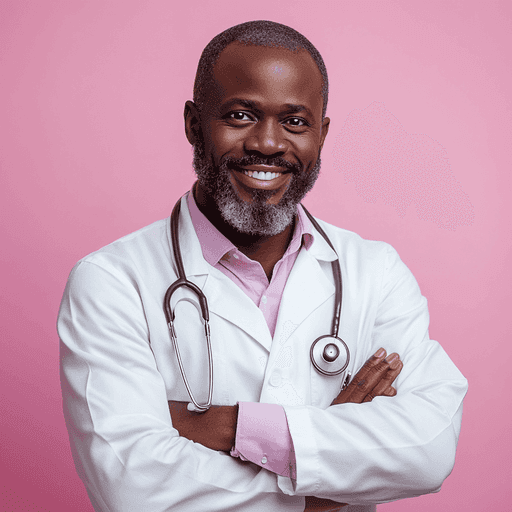Effective Treatments for Chlamydia: What to Expect
Jan 1, 2025
The most effective treatment for chlamydia is a course of prescribed antibiotics, typically azithromycin or doxycycline, which can completely clear the infection when taken as directed. Early treatment is crucial to avoid complications like pelvic inflammatory disease (PID) or infertility. This guide covers what to expect during recovery, how to prevent reinfection, and why regular testing matters.
Chlamydia Is Treatable
If you’ve been diagnosed with chlamydia, don’t panic - this STI is curable with the right treatment. The key to successful recovery is early diagnosis and completing the full course of antibiotics prescribed by a healthcare professional.
✔ Most people recover quickly with proper treatment.
✔ Delaying treatment increases health risks, including infertility in both men and women.
✔ Regular testing helps detect infections early and prevents long-term complications.
Chlamydia treatment is straightforward, but it requires strict adherence to prescribed antibiotics to ensure the infection is completely eliminated.
Antibiotics for Chlamydia
How Is Chlamydia Treated?
The standard treatment for chlamydia is a course of antibiotics, which work by stopping bacterial growth and allowing the immune system to clear the infection. The choice of antibiotic depends on the individual’s medical history, pregnancy status, and potential co-infections.
First-Line Antibiotic Treatments for Chlamydia
According to the Centers for Disease Control and Prevention (CDC), the recommended first-line antibiotics for uncomplicated chlamydia infections include:
✔ Doxycycline – 100 mg twice daily for seven days (most effective option).
✔ Azithromycin – 1 gram single-dose oral antibiotic (alternative when adherence to a full-week treatment is difficult).
For more details, visit the CDC’s chlamydia treatment guidelines: CDC - Chlamydia Treatment.
Alternative Treatments for Special Cases
For individuals who cannot take doxycycline, alternative antibiotics include:
✔ Levofloxacin – 500 mg once daily for seven days.
✔ Amoxicillin – 500 mg three times daily for seven days (recommended for pregnant individuals).
Chlamydia Treatment During Pregnancy
Pregnant individuals need special treatment considerations to ensure both maternal and fetal health. Safe antibiotic options include:
✔ Azithromycin – 1 gram single dose (preferred).
✔ Amoxicillin – 500 mg three times daily for seven days.
✔ Test-of-cure is recommended four weeks after treatment to ensure complete eradication of the infection.
What to Expect During Treatment
1. No Sex During Treatment
✔ Avoid sexual activity while undergoing treatment and for at least seven days after the last dose.
✔ If your partner is also infected, both of you should complete treatment before resuming sexual activity to prevent reinfection.
2. Side Effects of Antibiotics
While antibiotics for chlamydia are generally well-tolerated, some people may experience mild side effects such as:
✔ Nausea or upset stomach.
✔ Diarrhea or digestive discomfort.
✔ Yeast infections (in some women).
If you experience severe side effects or symptoms persist beyond a week after treatment, consult a healthcare professional.
3. Follow-Up Testing
✔ Routine retesting is recommended around three months after treatment, as reinfection is common.
✔ Pregnant individuals should undergo a follow-up test four weeks after treatment to ensure the infection is gone.
Treating Recurrent Chlamydia Infections
Chlamydia can sometimes reoccur, even after successful treatment. Reinfection is common, especially if sexual partners are not treated simultaneously.
✔ 40% of women with untreated chlamydia develop pelvic inflammatory disease (PID), which can lead to infertility.
✔ Men with untreated chlamydia can experience epididymitis, which may cause chronic testicular pain and fertility issues.
To prevent reinfection:
✔ Ensure all partners get tested and treated.
✔ Use condoms consistently.
✔ Get screened regularly if sexually active.
Prevention Strategies
Once treated, you can continue living a healthy, STD-free life by following these prevention strategies:
✔ Use Protection – Always use condoms or dental dams during sexual activity to reduce the risk of chlamydia and other STDs.
✔ Regular STD Testing – If you’re sexually active, get tested every 3-6 months, especially if you have multiple partners.
✔ Practice Monogamy – Being in a mutually monogamous relationship with a tested, STD-free partner reduces risk.
✔ Avoid Douching – Douching disrupts the vaginal microbiome and increases the risk of infections.
For fast and confidential STD testing, visit our trusted partner for quick results.
Chlamydia Treatment Myths and Misconceptions
Myth 1: Chlamydia Goes Away on Its Own
❌ False – Chlamydia requires antibiotics to be cured. Without treatment, it can persist for months or even years, causing long-term complications.
Myth 2: You Can Get Rid of Chlamydia with Home Remedies
❌ False – No herbal remedy, garlic, or apple cider vinegar will cure chlamydia. Only antibiotics prescribed by a doctor can treat the infection.
Myth 3: You Can’t Get Chlamydia Again After Treatment
❌ False – If you have unprotected sex with an untreated partner, you can get chlamydia again. This is why partner notification and follow-up testing are so important.
Conclusion
Chlamydia is treatable with the right antibiotics, but early detection is key to avoiding complications. Completing the full course of antibiotics, avoiding sex during treatment, and following up with STD testing are all essential steps in managing this infection.
Key Takeaways:
✔ Antibiotics like doxycycline and azithromycin are the most effective chlamydia treatments.
✔ Both partners must be treated to prevent reinfection.
✔ No sex during treatment to ensure full recovery.
✔ Follow-up testing is recommended three months after treatment.
✔ Prevention is possible through regular screening and protected sex.

Dr. Michael Thompson
Dr. Michael Thompson is an expert in sexually transmitted diseases with extensive clinical and research experience. He leads campaigns advocating for early diagnosis and prevention of diseases like HIV and gonorrhea. He collaborates with local organizations to educate both youth and adults about sexual health.





